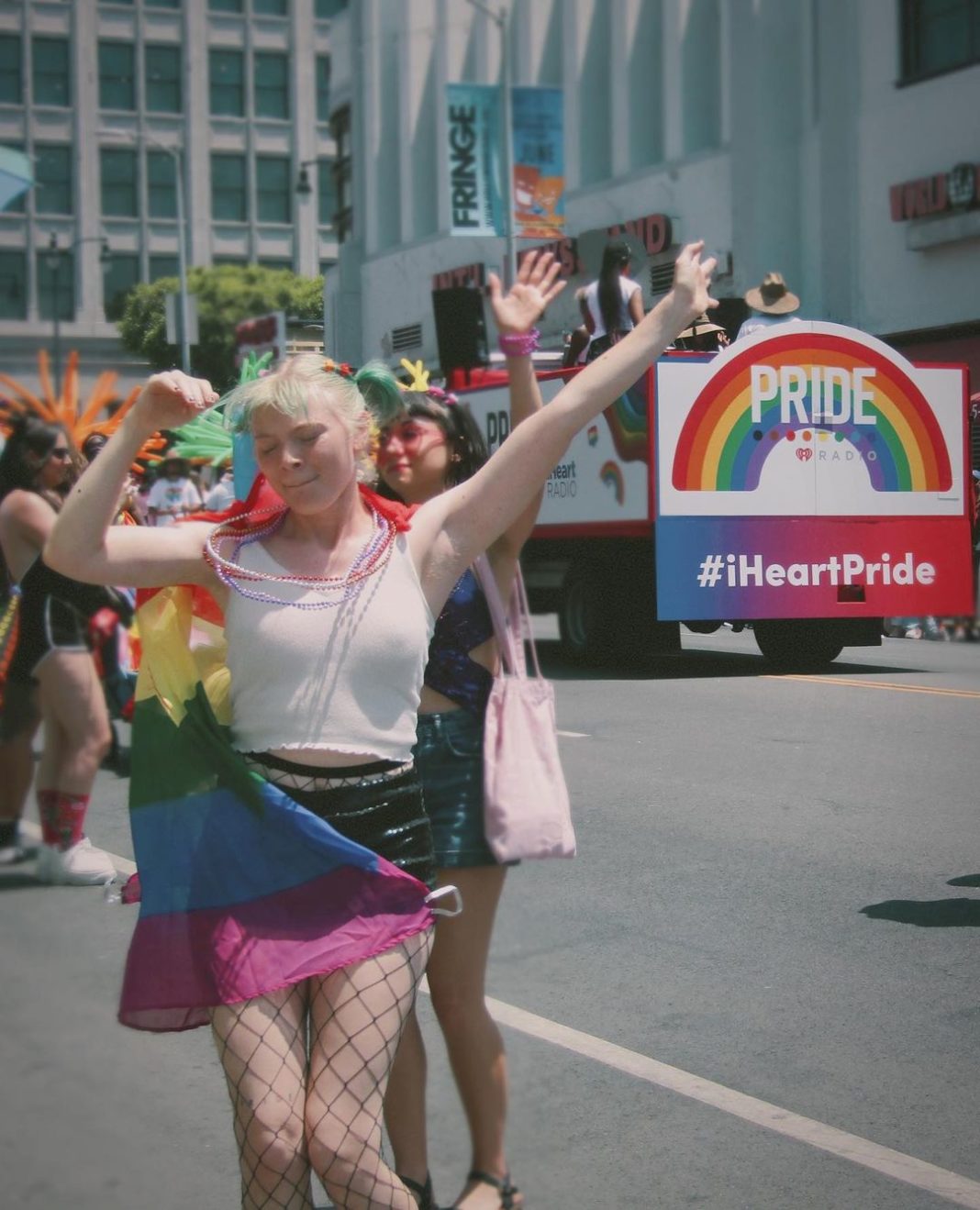
From 1979 to 2019, West Hollywood served as the official center for Los Angeles’ Pride events, hosting its annual parade and festival while local bars overflowed with celebrants.
After a two-year pandemic-induced hiatus, this year’s LA Pride will break away from that tradition, moving to Hollywood Boulevard, where the world’s first permitted gay parade took place in 1970. The 2022 weekend will kick off June 11 with musical event LA Pride in the Park — featuring Christina Aguilera and Anitta at Los Angeles State Historic Park — followed by the 52nd annual LA Pride Parade through Hollywood the next day.
Christopher Street West (CSW), the nonprofit behind LA Pride, decided to relocate the event for several reasons, says board vp community programs and initiatives Gerald Garth, starting with accessibility. “Being in Hollywood, with access to public transportation and freeway access and a number of other opportunities for folks to connect, was very important to us,” says Garth, following feedback about the difficulty in getting to WeHo. “More intentional and inclusive diversity” also was a major consideration, as the festival had been criticized for catering to white, upper-class members of the LGBTQ community. “We definitely considered it a responsibility to make sure that we were in a location that really reflected the broadness and richness of what the LGBTQ+ community looks like,” he says. “Hollywood definitely more reflects that experience.” (Christopher Street West recently diversified its board following criticism that it was predominately white.)
CSW did originally look to partner with the City of West Hollywood for this year’s festivities, the organization told THR in a statement: “However, the City chose to create its own event with a for-profit producer instead. We do thank the residents and business communities of West Hollywood, and LA Pride looks forward to exploring opportunities to partner with WeHo in the future as the City of West Hollywood is important to our community.” CSW also added that Los Angeles State Historic Park is several times larger than WeHo Park, which wasn’t large enough to accommodate the growth in attendance it is projecting, and had less access to public transportation.
West Hollywood, though, already held its own Pride weekend June 3 to 5, with the tagline, “Pride starts here.” The WeHo Pride celebration featured its own parade, a three-day Outloud music festival and Women’s Freedom Festival, plus a five-week LGBTQ Arts Festival. “West Hollywood has been the home of the largest Pride celebrations in Southern California for nearly four decades, and we’re looking forward to continuing that tradition,” Mayor Lauren Meister said in a statement to THR, making clear that the city does not plan to give up its title as Los Angeles’ LGBTQ hub, regardless of LA Pride’s plans. Indeed, WeHo had its own star power, with Janelle Monáe as grand marshal and an appearance by JoJo Siwa.
The back-to-back Prides have created some disorientation in the community over which groups are marching in which parades. The changes prompted gay parents group Pop Luck Club to send out an email to supporters stating, “There is some confusion, since WeHo Pride and LA Pride are each producing parades this year” and noting that they were participating in WeHo Pride.
“There’s a lot of commitment to LGBTQ persons in business and in their residents. I think that was important to West Hollywood to really ground around,” says Consoletti of the city’s decision to maintain a Pride Month presence. “It’s also exciting that LA Pride is expanding their reach. It’s exciting that Pride season extends longer than just one weekend in one location.”
Long Beach will also hold its own celebration, on July 9 and 10 with headliners Iggy Azalea and Natalia Jiménez, as will Santa Monica, hosting art installations and family-friendly events the entire month of June. Downtown L.A.’s DTLA Proud weekend will go on even later, from Aug. 5 to 7.
This year’s Pride comes at a fraught time for LGBTQ rights, with trans people under attack in many states and fears that gay marriage might be in danger given the more restrictive views of the Supreme Court. “While we do celebrate, we have to consistently be reminded that the reason our ancestors took to the streets was for justice, for equity and for rights,” Garth says. “We’re reminded that there’s still work to be done and that our unity matters.”




